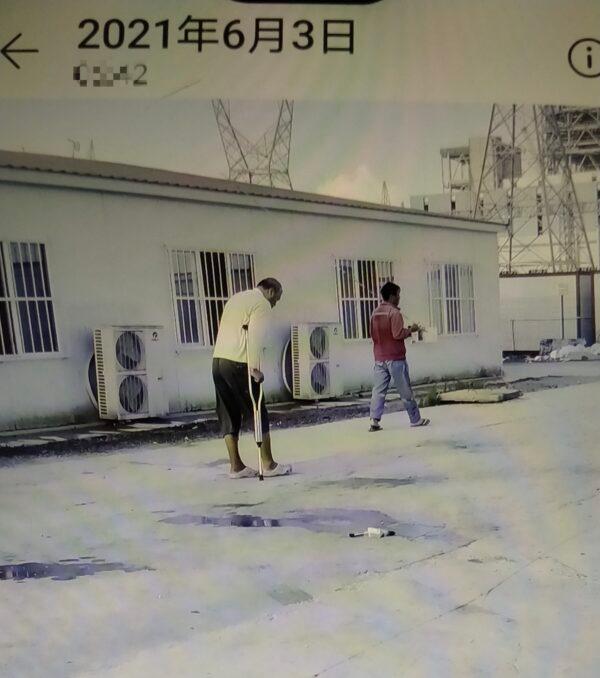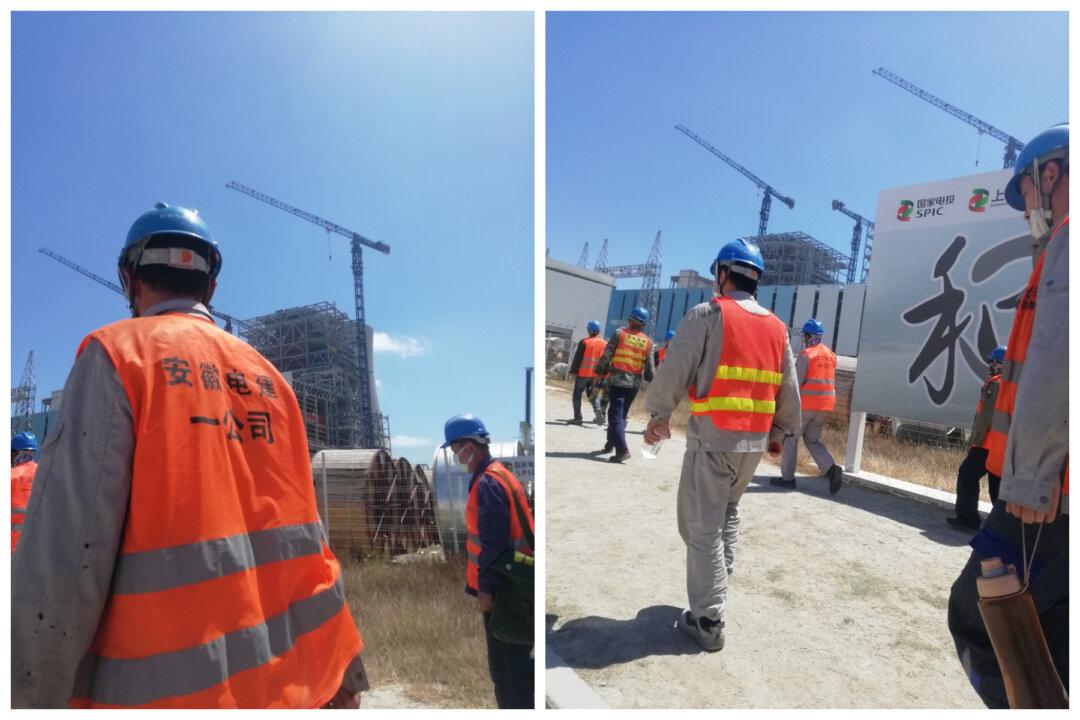At a coal plant with China’s biggest foreign direct investment in Turkey, skilled Chinese migrant workers are forced to endure over 12-hour workdays, seven days a week, underpayment, and no hope of recourse.
Liu Qiang (a pseudonym) told The Epoch Times that the touted high salaries of $2,346 per month prompted him to work in the Hunutlu Thermal Power Plant in Turkey during the pandemic.
The Hunutlu coal plant is a flagship project of the Chinese regime’s Belt and Road Initiative (BRI), a multi-trillion-dollar infrastructure scheme that seeks to increase the regime’s influence based on global trade links through investing in infrastructure-based development.
The skilled worker who spoke to The Epoch Times reported working 84 hours per week with little protection on the construction site.
Liu said they only have a few hours to sleep every day—getting up at 6 a.m. and finishing work at 11 p.m.
“We were told the scheduled working hours was nine, a normal job,” Liu said in an interview with The Epoch Times.
“But when we came [to Turkey], the company did not sign contracts, nor give any [working] permit,” he added, not to mention insurance or medical compensation.
The hot summer weather in Turkey and excessive hours working outdoors leaves them with dizziness and fatigue, Liu said, which led to mistakes or even injuries.
The man claimed that two of his roommates were not given proper medical treatment and could only lay down in a workers’ dormitory after getting leg injuries. One with deep flesh wound was told he would not be hospitalized unless the bone was broken.
“We are afraid that we will not earn much money but will be left with physical injuries—broken bones or other injuries—which could be a lifelong condition,” Liu continued.

Over one-third of his monthly payment was cut on the grounds that his skills cannot satisfy the criteria of the work applied for, Liu said.
Stranded Overseas
Liu told The Epoch Times that the pandemic had worsened the condition.According to his description, the construction site is surrounded by barbed metal wire, like a prison. Workers’ movements were strictly limited to the living areas. The food served lacks nutrients and seldom contains meat.
“We are tired, ill, and need a break, but are not allowed,” Liu said.
Liu stated that some workers had protested, but they were still held on the site and cannot go back to China.
He said their passports were seized and required documents for entering China could not be obtained from companies.
“They said we are only allowed to go back after a full working year. It’s horrible here! What is it going to be like after a year? I have no idea.
“I have to live and work like a slave,” Liu continued.
The man told The Epoch Times the Chinese workers sought help from the Chinese Embassy, but were told that labor disputes with Chinese employers are beyond the working scope of the embassy, which is only responsible for dealing with relationships with foreign parties.
China’s Embassy in Turkey did not respond to the emailed questions about the worker’s claim that laborers were left with a lack of safety protections and barred from returning to China.
The Chinese subcontractor AEPC could not be reached via phone call, web message, or WeChat.
According to Liu’s words, the Anhui Zhenjiang Holding Group (AZHG) is a subcontractor of the APEC. However, the staff of AZHG hung up the phone immediately while being asked about the project overseas, and did not respond to the allegations.
The report indicated that labors working for the Chinese Regimes’ BRI projects overseas are victims of human trafficking and forced labor.




